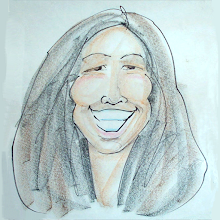Last week proved volatile in preventive health care for American women. On Monday, November 16, 2009 the U.S. Preventive Services Task Force (USPSTF) released new recommendations for screening mammography. The recommendations included a reversal of a twenty-year standard. The USPSTF's new recommendations increase the age for a first mammogram to 50 years old (up from 40) for women of average breast cancer risk. Further, the Task Force only recommends routine mammography screenings every two years for women ages 50 to 74 (decreased from annually). Later in the week the
American College of OB/GYNs recommended that women in their 20s only get pap smears every other year (also decreased from annually).
The USPSTF) is a panel of experts that advises doctors on medical care. Just seven years ago the Task Force, comprised of different members, recommended that women have mammograms every one to two years starting at age 40. The USPSTF's, "Recommendations highlight the opportunities for improving delivery of effective services and have helped others in narrowing gaps in the provision of preventive care in different populations." The panel's current
composition has sixteen members but does not include an oncologist.
The White House
blog states that the USPTF would have no power to deny insurance coverage in any way. The Task Force's recommendations would be used to help determine the types of services that must be provided for little or no cost. Further,
"The Task Force does not address insurance coverage and payment issues; it focuses on the science of the clinical services it evaluates." According to
Marisa Weiss, M.D., director of Breast Radiation Oncology and director of Breast Health Outreach at Pennsylvania's Lankenau Hospital, "These new recommendations could have a devastating effect on African-American women, African-American women are more likely to get breast cancer than white women when they're under age 40." Weiss, who is also the founder of leading online resource breastcancer.org, believes that given the unique impact of the illness on black women, USPSTF's recommendations could prove "disproportionately harmful."
Fear and loathing of the dreaded mammogram will likely cause many women in their lower forties to blindly accept the new recommendation. You have rights and they can be found succinctly
here and in depth
here. Don't let a doctor passively steer you away from life-saving medical care or bully you into tests or procedures you are uncomfortable with. Stay informed and vigilant about your health and medical care. "Fifty is the new forty" is only a cute sentiment when discussing fashion and ageless celebrities, not bare bones medical care.




